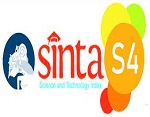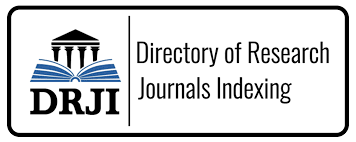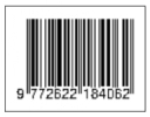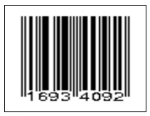Pengaruh Kecerdasan Emosional dan Kecerdasan Intelektual Terhadap Produktivitas Kerja Karyawan pada Auto 2000 Plaju
DOI:
https://doi.org/10.31851/jmwe.v22i1.18459Abstract
ABSTRAK
Penelitian ini memiliki tujuan guna mengetahui adanya suatu pengaruh pada kecerdasan emosoional dan kecerdasan intelektual terhadap produktivitas kerja karyawan pada Auto 2000 Plaju. Jumlah sampel pada penelitian ini berjumlah 34 karyawan pada divisi penjualan Auto 2000 Plaju. Kemudian adapun teknik analisis data penelitian menggunakan uji asumsi klasik, analisis regresi linier berganda dan uji hipotesis. Hasil uji hipotesis secara simultan dan parsial membuktikan bahwa terdapat pengaruh yang signifikan antara kecerdasan emosional dan kecerdasan intelektual terhadap produktivitas kerja karyawan Auto 2000 Plaju. Hasil koefisien determinasi menunjukan nilai R Square (koefisien determinasi) sebesar 0,305 atau 30,5% yang artinya variabel kecerdasan emosional dan kecerdasan intelektual terhadap produktivitas kerja karyaan pada Auto 2000 Plaju, hanya menyumbangkan sebesar 30,5% untuk produktivitas kerja karyawan.
Kata Kunci: Kecerdasan Emosional, Kecerdasan Intelektual, Produktivitas Kerja Karyawan.
ABSTRACT
This study aims to determine the effect of emotional intelligence and intellectual intelligence on employee work productivity at Auto 2000 Plaju. The number of samples in this study amounted to 34 employees in the Auto 2000 Plaju sales division. The data analysis technique used in this study was the classical assumption test, multiple linear regression analysis and hypothesis testing. The results of hypothesis testing simultaneously and partially prove that there is a significant influence between emotional intelligence and intellectual intelligence on the work productivity of Auto 2000 Plaju employees. The results of the coefficient of determination show the value of R Square (coefficient of determination) of 0.305 or 30.5%, which means that the variables of emotional intelligence and intellectual intelligence on work productivity at Auto 2000 Plaju only contribute 30.5% for employee work productivity.
Keywords : Emotional Intelligence, Intellectual Intelligence, Employee Work Productivity.
References
Dedek , P. (2021). Kecerdasan spritual (SQ) dan kecerdasan intelektual (IQ) dalam mayoritas remaja berpacaran upaya mewujudkan manusia seutuhnya. Malang: CV. Multimedia edukasi malang .
Endang, S. (2020). Membangun kinerja dan motivasi dalam organisasi. Malang: Media Nusa Creative.
Goleman. (2018). Emotional Intelligence : Kecerdaan Emosional El Lebih Penting dari pada IQ. Semarang: Gramedia Pustaka Utama.
Markhomah DKK , (2022). Strategi pengembangan talenta inovasi dan kecerdasan anak . Surakarta : Universitas Muhammadiyah Surakarta .
Ngalim, P. (2013). Pisikologi Pendidikan. Bansdung: PT. Remaja Redakarya.
Sugiyono. (2019). Metode penelitian kuntitatif, kualitatif dan R&D. (M. Dr. Ir. Sutopo. S.Pd, Ed.) ALFABETA,cv.
Rini, & Intan. (2015). Etika propesi dan pengembangan pribadi . Palembang: Citra Books Indonesia .
Sudaryo. (2018). Manajemen sumber daya manausia, kompensasi tidak langsung dan lingkungan kerja fisik. Yogyakarta : ANGGOTA IKAPI .
Sunyoto , D. (2018). Manajemen sumber daya manusia. Yogyakarta: Center for academic publishing service.
Sutrisno , E. (2019). Manajemen sumber daya manusia . Jakarta : Prenada Media Group.
Yuniarsih, S. T. (2016). Manajemen sumber daya manusia. Bandung: Alfabetha.
Downloads
Published
Issue
Section
License
Copyright (c) 2025 Jurnal Media Wahana Ekonomika

This work is licensed under a Creative Commons Attribution-NonCommercial 4.0 International License.
The copyright of the received article shall be assigned to the publisher of the journal licensed under a Creative Commons Attribution-NonCommercial 4.0 International License in line with the license, authors and any users (readers and other researchers) are allowed to share and adapt the material only for non-commercial purposes. In addition, the material must be given appropriate credit, provided with a link to the license, and indicated if changes were made. If authors remix, transform or build upon the material, authors must distribute their contributions under the same license as the original.






















